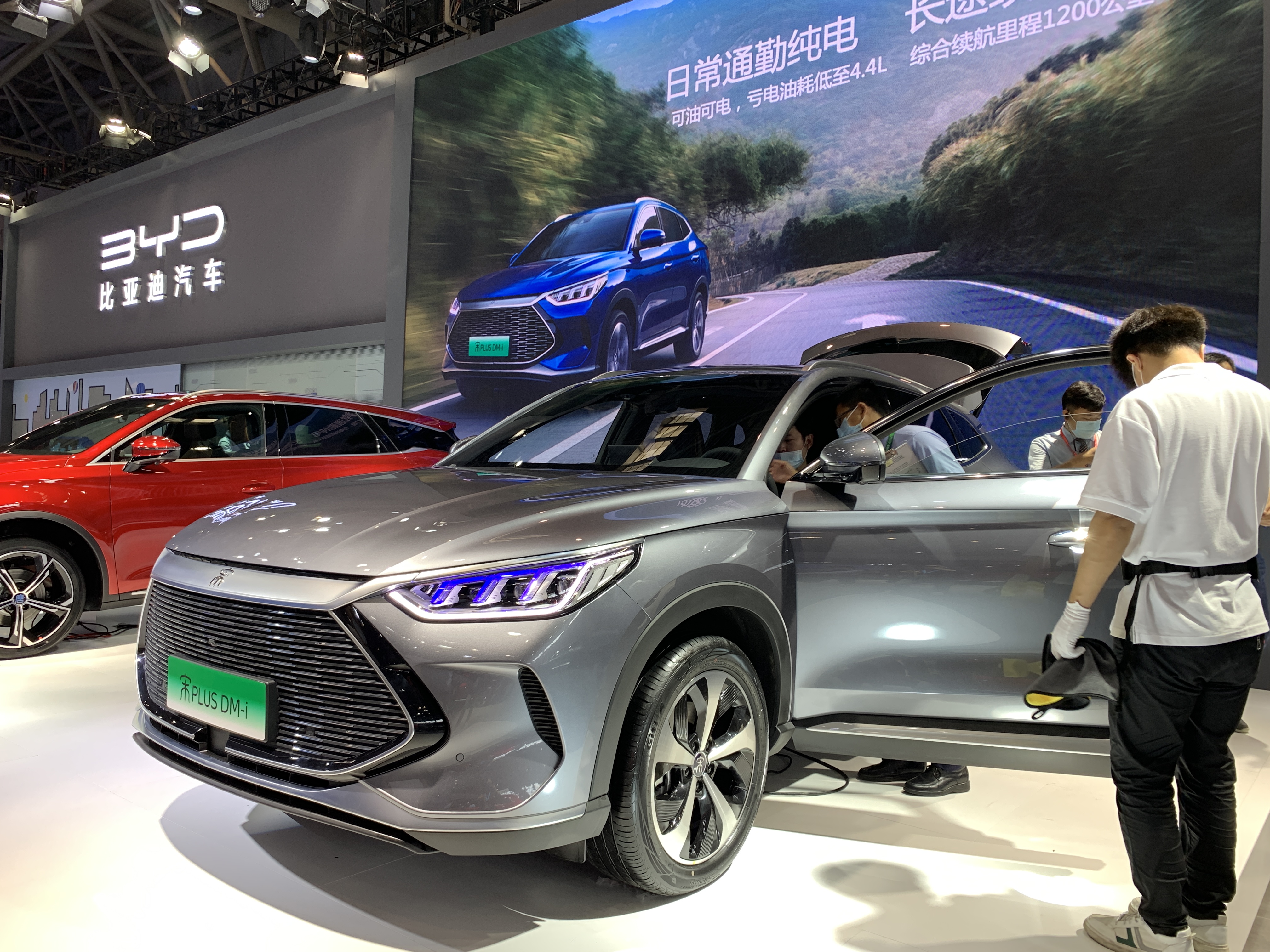Nation's car sales slip but will still beat 2020

COVID-19 pandemic and semiconductor chip shortages affect motoring industry as a whole
The drop in sales in China's vehicle market, which started in May and continued unabated into July, may continue for the coming months, the country's top industry association has warned. But it added that more vehicles will be delivered this year than in 2020.
"We had a terrible first half last year because the COVID-19 distanced people from showrooms, and they rushed to buy cars when the pandemic was put under control in the second half," said Xu Haidong, deputy chief engineer of the China Association of Automobile Manufacturers.
"That means we have a high comparative base in the second half that is hard to exceed. So we will see year-on-year falls in the following months, although the fall won't be as steep as in June," he said.
Starting from May, the Chinese vehicle market, the world's largest, had seen sales falls for three months in a row, by 3.1 percent in May, 12.4 percent in June and 11.9 percent in July.
Other colluding factors that resulted in sales falls include the chip crisis that is sweeping the global auto industry as well as floods and small outbreaks of new COVID-19 cases in some cities.
Statistics from the association show that 1.86 million vehicles were sold in July. The premium vehicle sector, which usually fares better than the overall market, saw a 6.4 percent fall in the month. The fall was 2 percent in June.
Volume car brands were hurt deeper in July. Of the bestselling five carmakers, four saw sales slumps in the month including FAW-Volkswagen, SAIC-Volkswagen and SAIC-GM.
FAW-Volkswagen, the most popular carmaker, seized a 7.5 percent market share in the month, but its sales nose-dived almost 37 percent from the same month last year.
Some of its dealers said their inventory was merely 30 percent of their monthly sales, which is already far below the healthy level between 100 percent to 150 percent.
Sino-Japanese joint venture Dongfeng Honda saw its sales fall over 20 percent in the month.
Deliveries are expected to be hit in August as well as it halted production at three plants in Wuhan, capital of Hubei province, starting earlier this month due to chip shortages.
Chinese electric car startup Nio said its supply chains have been disrupted also.
The situation, which is especially serious from June to August, will turn for the better starting from the third quarter, as the authorities are cracking down on price gouging and some carmakers are turning to alternative chip suppliers, said the association's deputy secretary-general Chen Shihua.
Under such circumstances, despite the estimated sales falls in coming months, total vehicle deliveries this year will be more than in 2020, said the association.
Last year, 25.31 million vehicles were sold. Sales in the first seven months this year totaled over 14.76 million vehicles, up 19.3 percent from the same period last year, according to statistics from the association.
The new energy vehicle sector has defied the downturn in China's overall vehicle market so far.
A total of 271,000 electric cars and plug-in hybrids were sold in July, up 164.4 percent year-on-year. They brought total deliveries in the first seven months to 1.48 million units, almost tripling the figure in the same period last year.
That means one in every 10 vehicles sold in China from January to July this year was a new energy vehicle, and their popularity is expected to grow further in coming months.
"The sales from January to July are already higher than those in any previous whole year," said the association. It estimates that NEV sales could reach 2.4 million this year, up from its previous estimate of 1.8 million.
The NEV segment has been growing fast in China, as more and more private car owners are considering such vehicles as decent alternatives to gasoline vehicles.
Statistics from the association show that sales of electric and plug-in hybrid family cars totaled 1.4 million in the first seven months, accounting for 94.6 percent of China's total NEV sales in the period.
In July, five carmakers in China sold over 10,000 NEVs, according to the China Passenger Car Association.
BYD ranked first at 51,000 units. It was followed by Tesla, whose deliveries reached almost 33,000 units. SAIC-GM-Wuling came third at 27,000 units. GAC's Aion and SAIC each sold over 10,000 units in the month.

